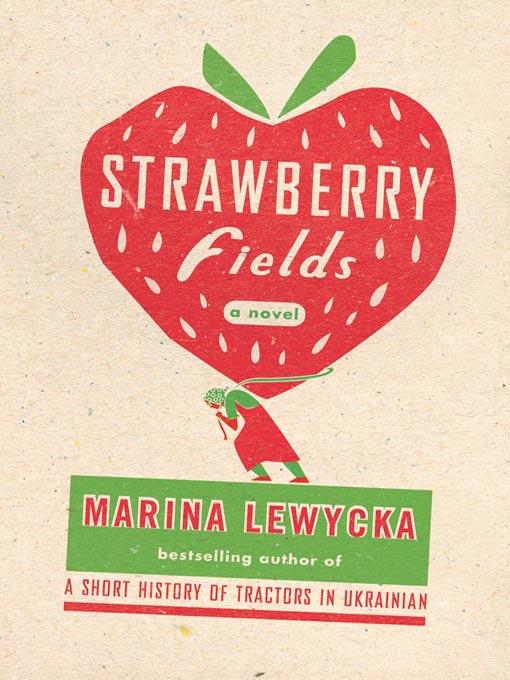
Strawberry Fields
A Novel
کتاب های مرتبط
- اطلاعات
- نقد و بررسی
- دیدگاه کاربران
نقد و بررسی

May 28, 2007
U.K.-based Lewycka, a Booker and Orange Prize nominee for 2005’s A Short History of Tractors in Ukrainian
, follows up with a Chaucer-inspired tale of migrant workers trapped at global capital’s thuggish bottom. After being “helped” into England by men like Vulk, an armed, lecherous creep of indeterminate former east bloc origins, a disparate group of strawberry pickers begins a pilgrimage-like search for labor across the countryside after their philandering boss is run over and crippled by his wife. Among them are two Ukrainians: Irina, a naïve teenager from Kiev, and Andriy, a former coal miner. After a brief stop in Canterbury, the workers—from Malawi, China, Malaysia and elsewhere—arrive in Dover with their loyal dog. There, they unexpectedly meet shady “recruitment consultant” Vitaly, who promises jobs in “the dynamic resurgence of the poultry industry.” The plot moves slowly, and things get worse for the group. Lewycka doesn’t have a perfect command of all the cultures she aims to represent, making some of her satires broad and unfunny. There are, however, captivating scenes (some not for the squeamish), and many of the characters are complex and multifaceted, Irina and Andriy in particular. As a send up of capitalism’s grip on the global everyman, Lewycka’s ensemble novel complements Gary Shteyngart’s Absurdistan
.

July 1, 2007
Published in the United Kingdom under the title "Two Caravans", this second novel by the award-winning Lewycka ("A Short History of Tractors in Ukrainian") portrays the experience of immigrants working as unskilled laborers in modern-day England. While the book's central character is perhaps 19-year-old Irina Blazkho, freshly recruited from Ukraine to pick strawberries in the English countryside, the novel actually shifts between the alternating narratives of several characters. These include another Ukrainian immigrant, a Polish woman field supervisor, a young African man, and, in a unique twist, an exuberant male canine aptly named Dog. The juxtapositions of these various narratives, along with dialog written in broken English vernacular, bring an edge of hilarity to the story. And how these immigrants are often exploited by unscrupulous farmers, business owners, and even their fellow immigrants is depicted achingly and yet with black humor. As the narrative evolves into a road and love story, Lewycka manages to rein in her sometimes sophomoric tone with wry insight. It is finally the author's keen understanding of how a global consciousness and labor market have come together with a changing European economy that gives this book its gravity and strength. Recommended for all public library fiction collections. [See Prepub Alert, "LJ" 4/15/07.]Maureen Neville, Trenton P.L., NJ
Copyright 2007 Library Journal, LLC Used with permission.

























دیدگاه کاربران